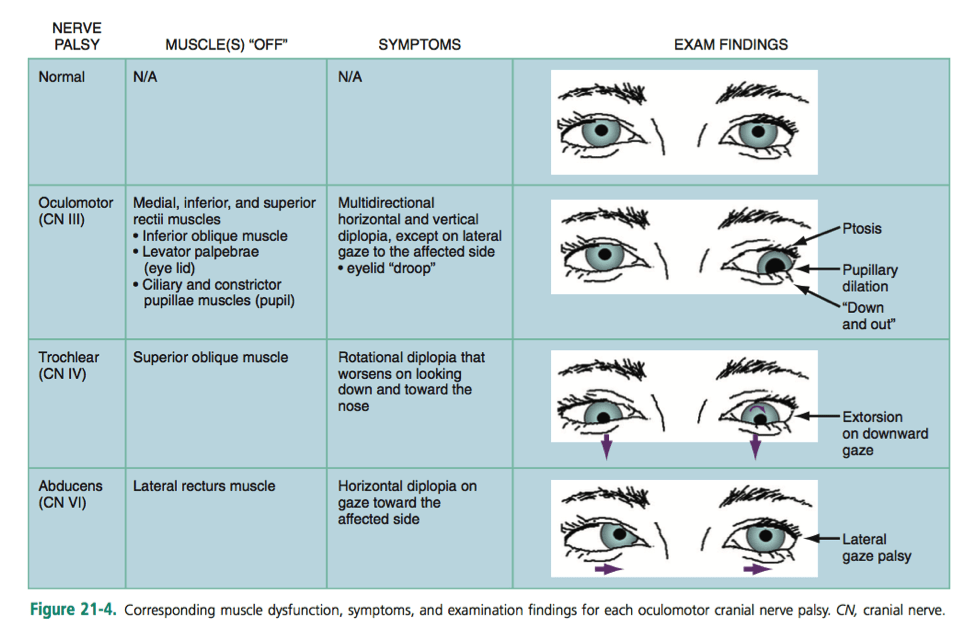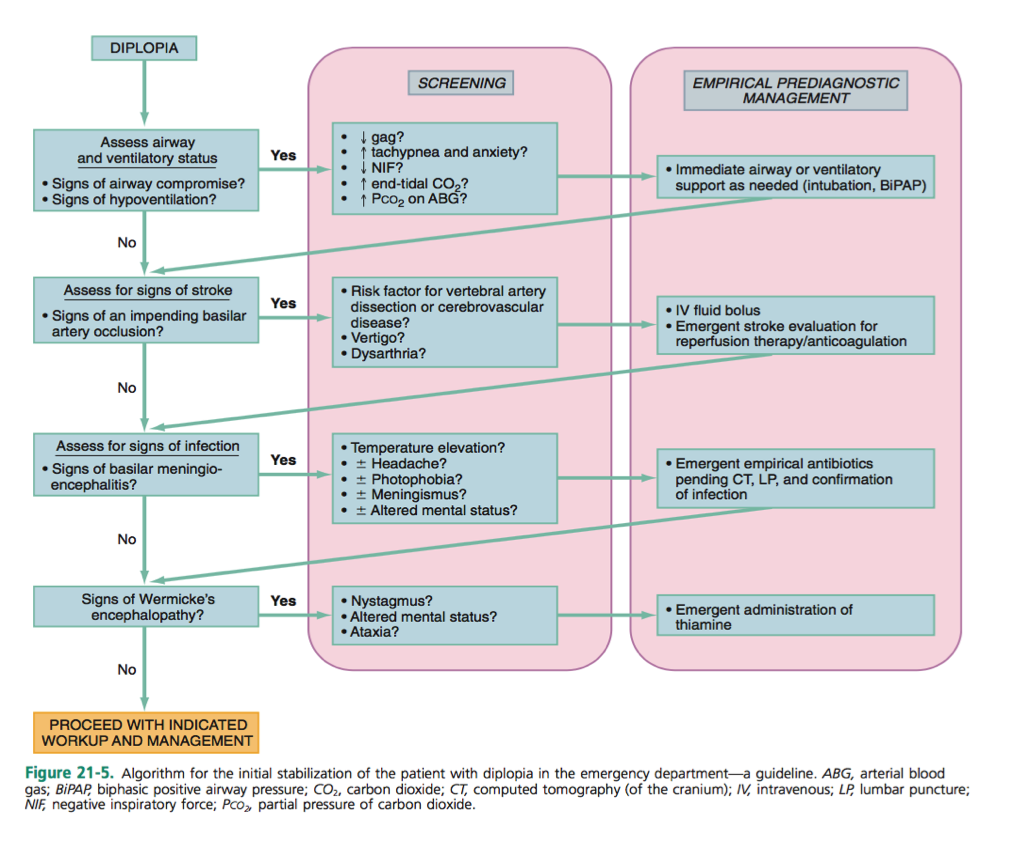This episode of CRACKCast covers Rosen’s Emergency Medicine, Chapter 021 – Diplopia. Here the podcast reviews how to risk stratify diplopia and when to be most concerned for this uncommon chief complaint.
Shownotes – PDF Here
[bg_faq_start]Rosen’s in Perspective
Diplopia is uncommon presentation to the ED, representing 1.4% of eye emergencies; however, it can be extremely debilitating for patients when it does occur. Diplopia can be:
- Monocular (15%) – persists in one eye even if the other eye is closed
- Binocular (85%) – resolves when either eye is closed
Monocular = distortion with the light path through the eye (typically an eye issue)
Binocular = pathology can exist in multiple locations, including:
- Ocular
- Ocular muscle
- Cranial nerves (CN VI palsy a very common cause of diplopia)
- Upper versus lower neuron disease
- Ocular centre dysfunction in CNS
- Brainstem
1) List the differential diagnosis (critical emergent, urgent) for Diplopia (including at least 7 causes of binocular diplopia)
Critical
- Basilar Artery Thrombosis
- Botulism
- Basilar Meningitis
- Aneurysm
Emergent:
- Vertebral Dissection
- Myasthenia Gravis
- Wernicke’s Encephalopathy
- Orbital Apex Syndrome / Cavernous Sinus Process
Urgent:
- Brainstem Tumour
- Miller-Fisher Syndrome
- Multiple Sclerosis
- Graves Disease
- Ophthalmoplegic Migraine
- Ischemic Neuropathy
- Orbital myositis / pseudotumor
- Orbital apex mass
2) Describe the mechanisms of normal extraocular movements
- Remember: “SO4 – LR6 (and the rest are 3)”
3) Describe specific cranial nerve palsies causing diplopia
Wisecracks
1) What are the 5 most important questions to ask yourself about diplopia?
- Is the diplopia monocular?
- Is the binocular diplopia a result of a restrictive, mechanical orbitopathy?
- Is the binocular diplopia a result of a palsy of the oculomotor CNs (III, IV, or VI) in a single eye?
- Is the binocular diplopia a result of a neuroaxial process involving the brainstem and related CNs?
- Is the binocular diplopia a result of a neuromuscular disorder?
2) Describe your approach to diplopia in the sick patient
[bg_faq_end]This post was uploaded and copyedited by Riley Golby (@RileyJGolby)






